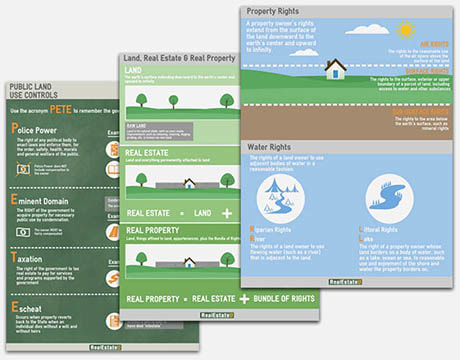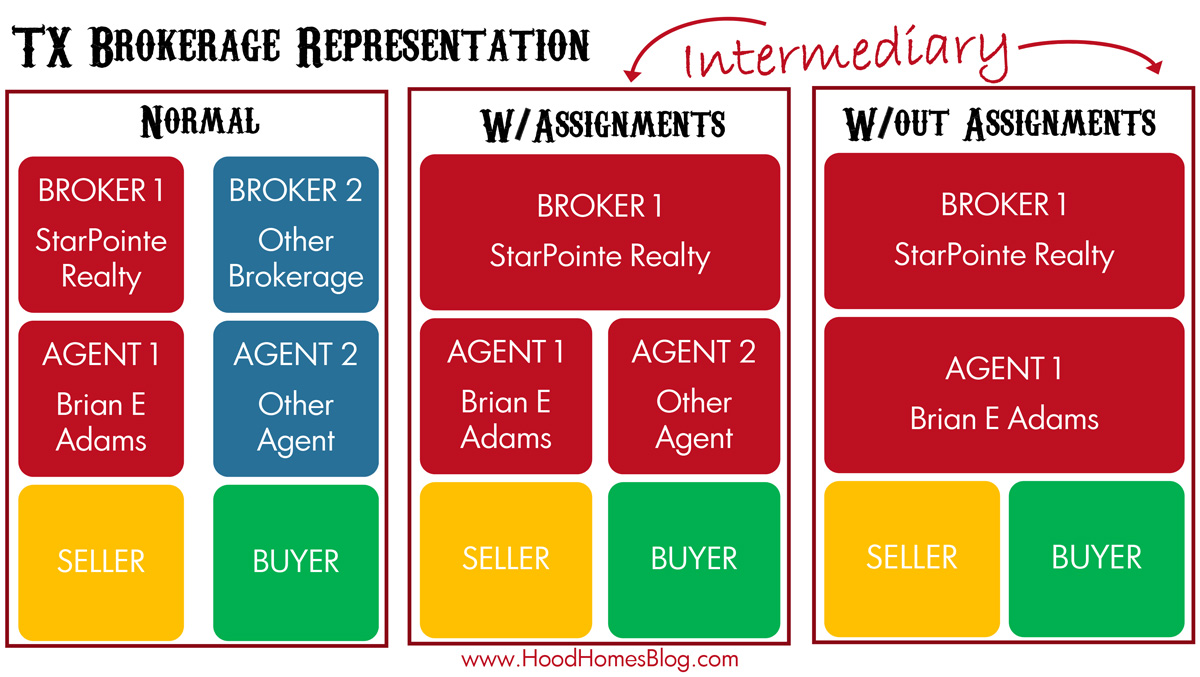
Pre licensing courses for real estate require you to pay attention to several factors. It should be accredited by the New York State Department of State, IDECC, and ARELLO, and it should be a minimum of six months old. It should be accessible and have a limited scope. We will discuss the pros & cons of three different programs. Read on to find out which one is right for you.
ARELLO & IDECC Accredited
Kaplan, an educational leader since 1938, offers continuing education in real estate. ARELLO & IDECC accredited the company. The institute's courses are broken down into smaller topics, making them easier to comprehend and retain. Students can also benefit from the company's exclusive exam prep master, which provides 1,000+ practice questions to help them ace the real estate licensing exam. Online courses are offered by the company in all 50 states.
ARELLO International is a training organization for real-estate regulators around the world. Its main purpose is to promote better real estate licensing and regulatory legislation in its member jurisdictions. Real estate courses offered by ARELLO-accredited providers are designed to help students pass state licensing exams. Real Estate Express was one of the first online providers that passed this rigorous certification process. Once certified, these courses adhere to the rigorous standards of both ARELLO and IDECC.

New York State Department of State accredited
Accredited by New York State Department of State pre licensing class for real estate is 75-hours long and covers all of key topics. Each area is covered, along with key terms and subtopics. A final exam rounds out the course. To pass the exam, you will need to score 70%. This course is excellent for those with a criminal past or who wish to continue education after a break.
RealEstateU will help you decide which course you should take to become licensed. This program provides comprehensive preparation for the NYS real-estate exam. Its reviews on AgentAdvice are stellar, with an average rating of 4.20 stars. Ninety-five percent of the reviews are five stars, and there are no 1-star reviews.
Limiting scope
An education provider must comply with all Department rules and regulations when offering a pre-licensing course in real estate. This course must contain the minimum number hours necessary to be eligible for licensure. The course must contain the most recent changes to the laws and regulations, as well the Department policy. Here is a description for the course content. You will need to consider additional criteria when deciding the course scope.
Expensive
Pre-licensing for real estate can be expensive and make the process seem harder than it is. It is cheaper to take an online course. This will save you money. However, online courses may not be available in all states. You should also keep in mind that the cost of a pre-licensing course varies greatly depending on the school you choose.

Real Estate Express is a well-respected online school that teaches real estate. It is listed in a nationwide guide to online real-estate schools. New York's entry-level Pre-licensing Course Packages include 75 hours in class, three real estate books, and access by state-approved educators. For those who cannot take a full-time course, a weekend option is also available.
FAQ
What are the advantages of a fixed rate mortgage?
A fixed-rate mortgage locks in your interest rate for the term of the loan. You won't need to worry about rising interest rates. Fixed-rate loans have lower monthly payments, because they are locked in for a specific term.
What are the 3 most important considerations when buying a property?
The three most important things when buying any kind of home are size, price, or location. Location refers the area you desire to live. Price is the price you're willing pay for the property. Size refers the area you need.
Can I buy a house without having a down payment?
Yes! There are programs available that allow people who don't have large amounts of cash to purchase a home. These programs include FHA, VA loans or USDA loans as well conventional mortgages. Check out our website for additional information.
What is reverse mortgage?
A reverse mortgage is a way to borrow money from your home without having to put any equity into the property. It works by allowing you to draw down funds from your home equity while still living there. There are two types: conventional and government-insured (FHA). You must repay the amount borrowed and pay an origination fee for a conventional reverse loan. FHA insurance covers repayments.
How much will my home cost?
This can vary greatly depending on many factors like the condition of your house and how long it's been on the market. Zillow.com reports that the average selling price of a US home is $203,000. This
What are some of the disadvantages of a fixed mortgage rate?
Fixed-rate mortgages tend to have higher initial costs than adjustable rate mortgages. Additionally, if you decide not to sell your home by the end of the term you could lose a substantial amount due to the difference between your sale price and the outstanding balance.
Statistics
- Some experts hypothesize that rates will hit five percent by the second half of 2018, but there has been no official confirmation one way or the other. (fortunebuilders.com)
- This seems to be a more popular trend as the U.S. Census Bureau reports the homeownership rate was around 65% last year. (fortunebuilders.com)
- 10 years ago, homeownership was nearly 70%. (fortunebuilders.com)
- The FHA sets its desirable debt-to-income ratio at 43%. (fortunebuilders.com)
- Private mortgage insurance may be required for conventional loans when the borrower puts less than 20% down.4 FHA loans are mortgage loans issued by private lenders and backed by the federal government. (investopedia.com)
External Links
How To
How to Manage a Property Rental
It can be a great way for you to make extra income, but there are many things to consider before you rent your house. We'll help you understand what to look for when renting out your home.
If you're considering renting out your home, here's everything you need to know to start.
-
What should I consider first? Consider your finances before you decide whether to rent out your house. If you have outstanding debts like credit card bills or mortgage payment, you may find it difficult to pay someone else to stay in your home while that you're gone. Also, you should review your budget to see if there is enough money to pay your monthly expenses (rent and utilities, insurance, etc. You might find it not worth it.
-
How much does it cost for me to rent my house? The cost of renting your home depends on many factors. These factors include the location, size and condition of your home, as well as season. Remember that prices can vary depending on where your live so you shouldn't expect to receive the same rate anywhere. The average market price for renting a one-bedroom flat in London is PS1,400 per month, according to Rightmove. If you were to rent your entire house, this would mean that you would earn approximately PS2,800 per year. That's not bad, but if you only wanted to let part of your home, you could probably earn significantly less.
-
Is this worth it? There are always risks when you do something new. However, it can bring in additional income. It is important to understand your rights and responsibilities before signing anything. Renting your home won't just mean spending more time away from your family; you'll also need to keep up with maintenance costs, pay for repairs and keep the place clean. Before signing up, be sure to carefully consider these factors.
-
Are there any benefits? You now know the costs of renting out your house and feel confident in its value. Now, think about the benefits. Renting your home is a great way to get out of the grind and enjoy some peace from your day. You will likely find it more enjoyable than working every day. Renting could be a full-time career if you plan properly.
-
How can I find tenants Once you've made the decision that you want your property to be rented out, you must advertise it correctly. You can start by listing your property online on websites such as Rightmove and Zoopla. Once potential tenants reach out to you, schedule an interview. This will help to assess their suitability for your home and confirm that they are financially stable.
-
What are the best ways to ensure that I am protected? If you fear that your home will be left empty, you need to ensure your home is protected against theft, damage, or fire. You will need insurance for your home. This can be done through your landlord directly or with an agent. Your landlord will usually require you to add them as additional insured, which means they'll cover damages caused to your property when you're present. This does not apply if you are living overseas or if your landlord hasn't been registered with UK insurers. In this case, you'll need to register with an international insurer.
-
Sometimes it can feel as though you don’t have the money to spend all day looking at tenants, especially if there are no other jobs. You must put your best foot forward when advertising property. Make sure you have a professional looking website. Also, make sure to post your ads online. A complete application form will be required and references must be provided. Some people prefer to do the job themselves. Others prefer to hire agents that can help. In either case, be prepared to answer any questions that may arise during interviews.
-
What happens after I find my tenant?After you've found a suitable tenant, you'll need to agree on terms. If you have a lease in place, you'll need to inform your tenant of changes, such as moving dates. You may also negotiate terms such as length of stay and deposit. While you might get paid when the tenancy is over, utilities are still a cost that must be paid.
-
How do I collect rent? You will need to verify that your tenant has actually paid the rent when it comes time to collect it. You will need to remind your tenant of their obligations if they don't pay. Any outstanding rents can be deducted from future rents, before you send them a final bill. You can call the police if you are having trouble getting hold of your tenant. The police won't ordinarily evict unless there's been breach of contract. If necessary, they may issue a warrant.
-
What are the best ways to avoid problems? Renting out your house can make you a lot of money, but it's also important to stay safe. Make sure you have carbon monoxide detectors installed and security cameras installed. Make sure your neighbors have given you permission to leave your property unlocked overnight and that you have enough insurance. Finally, you should never let strangers into your house, even if they say they're moving in next door.